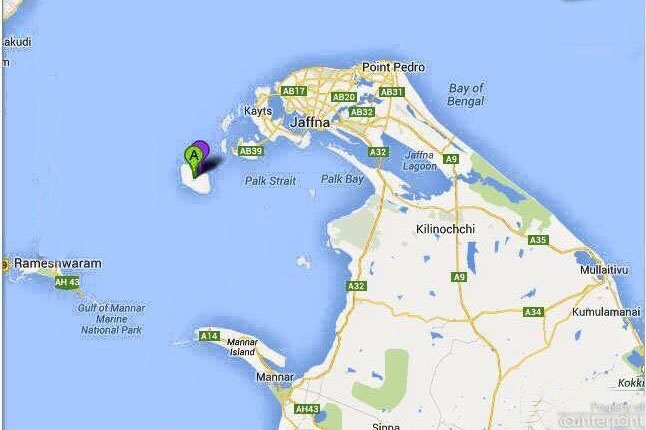While India fears Chinese snooping, Sri Lanka says Indian proposal was not competitive and the security concern is untenable
Colombo, February 7: Indian sources acknowledged on Sunday that India has expressed its “strong” concern about the location of three Chinese renewal energy projects in Sri Lanka’s Northern Province barely 48 km from Rameswaram in Tamil Nadu.
The sources said that the projects were security threat to India which is just across the narrow Palk Strait.
The local media had reported that the three renewable energy projects are to be located in Delft, Analativu and Nainativu, which are islands off the coast of Jaffna in North Sri Lanka. The projects had been approved by the Lankan Cabinet on January 18.
The energy project’s local partner, the Ceylon Electricity Board, had entered into a joint venture with MS/Sinosar-Etechwin of China. Funds for the US$ 12 million project are to come from the Asian Development Bank. The award to the Chinese company was recommended by the Cabinet-Appointed Standing Committee on Procurement.
International competitive bids were called to install hybrid renewable energy systems in the three islands utilizing accessible energy resources to improve the efficiency of the prevailing energy network. Sri Lankan sources said that the location were chosen as the Governor of the Northern Province Ms.P.S.M.Charles had been pressing for power projects due to the energy shortage in her war-devastated domain.
Sri Lankan government told the Indians that the Indian company which bid for the project did not submit a competitive proposal and that the bid were evaluated by the ADB independently of the Sri Lankan government.
Colombo asked India to submit competitive proposals and added that its companies could bid for other projects in the Northern Province.
But India’s concern was strategic and its security against Chinese snooping. Sri Lankan authorities however say that India should not cite “security” as a reason for blocking Sri Lanka’s projects beyond reasonable limits as doing so infringes Sri Lanka’s sovereignty.
P.K.Balachandran





